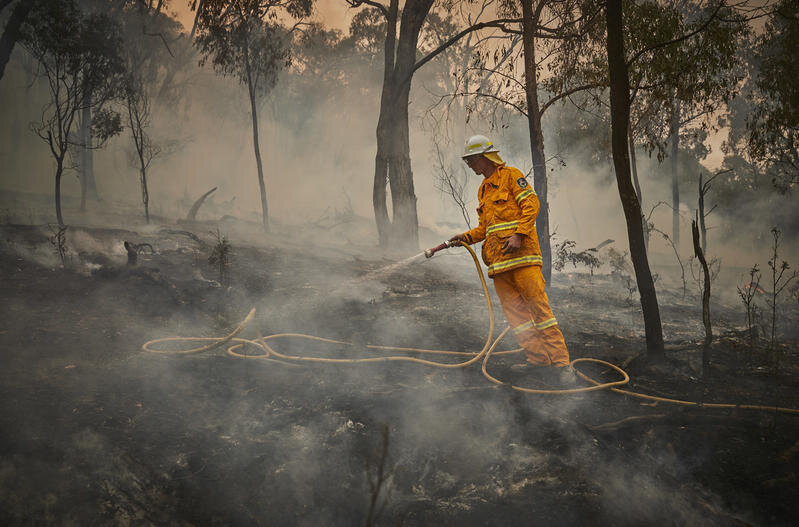Australia is burning. So what can we do?
Olivia Olphin responds to the Australian bushfires with a call to action.
It is 2020. Australia is burning. Just outside Sydney the temperature is 48.9°C. Summer doesn’t end until February. The world watches, exclaiming it a tragedy.
If you have seen photographs of the bushfires in Australia, you will know the extent of the damage. Fiery orange hues push through the skies filled with noxious fog and smoke from the burning landscape. Pictures of burnt kangaroos carcasses are going viral, with nearly 500 million animals dead. Ecologists say that some species may be pushed to extinction and never recover. The photographs seem like those of an apocalyptic future, a world burning. But this is not the future; this is right now.
Climate change has been on the agenda for years in the UK. We have all been told to recycle, reduce our meat intake, use greener transport. Government have been advised to reduce fossil fuel usage and switch to sustainable energy sources such as wind power or nuclear power. The recent successful Conservative manifesto for the 2019 general election claims that “we will lead the global fight against climate change by delivering on our world-leading target of net zero greenhouse gas emissions by 2050”, with the manifesto referring to the optimistic and forward-thinking targets set at the 2015 Paris Climate Accords.
However, this fight against climate change is only a ‘target’ or an ambition set by Britain. The Committee on Climate Change, who work to advise governments on emissions targets and reductions, state that although the UK is on target to reach its reduced carbon targets in 2018-2022, the country is not on track to meet its fourth target in 2023-2027. If Climate Change really is a ‘global fight’ as the manifesto states, then we are already losing. If the UK, a relatively small country, cannot reduce its emissions, how can we expect CO2 juggernauts like China and America to follow suit?
The Australian bushfires are reminiscent of the California wildfires of 2018 - they are not isolated incidents. But if the California fires were Bruce Banner, the Australia fires are the Hulk. The bushfires have burned more than 12 million acres of land, roughly 45,562 km2. For reference, London is only 1,572 km2 in size. In Australia, nine of the ten warmest years on record have been in the past decade, yet Australian Prime Minister Scott Morrison is seen as a regressive force by many climate change experts. His comments on the bushfires have incited anger from residents, activists, and politicians as he refuses to draw a correlation between the recent events in Australia and an ever-increasing warming of the planet.
In a time where Donald Trump still declares there is no climate emergency, refusing to believe scientists and leaders in the field, and pulling America out of the Climate Accords, it is hard to feel positive about the possibility for change. So, what can we do? It is easy to sit and stare at the news, watch the fires burning and feel helpless.
Donate to organisations like the local state firefighters (here and here), the RSPCA, the Red Cross, and WWF, all of whom are helping on the ground in Australia.
Follow activists like Greta Thunberg on social media and the organisations they recommend and support.
Make changes to your lifestyle. Use sustainable products, reduce fast fashion, and support changes in your local area as well as nationally.
Don’t support and give your money to big businesses that have no plans to reduce their carbon footprint.
Get involved with climate protest groups like Greenpeace and Extinction Rebellion who use peaceful protest to put pressure on governments and big businesses.
We need to put more pressure on our government to implement long-lasting solutions. We cannot wait until 2050 to see if we have hit our climate targets.
There are incredible activists and firefighters working tirelessly to quench the flames that grip Australia. Many more residents and activists will work doggedly to rebuild and attempt to regenerate swathes of land. Hopefully they will not have to deal with another event quite so disastrous, but without the help of all of us and a change of mindset about the world we live in, we may lose this global fight.
Pi Opinion content does not necessarily reflect the views of the editorial team, Pi Media society, Students’ Union UCL or University College London. We aim to publish opinions from across the student body - if you read anything you would like to respond to, get in touch via email.

